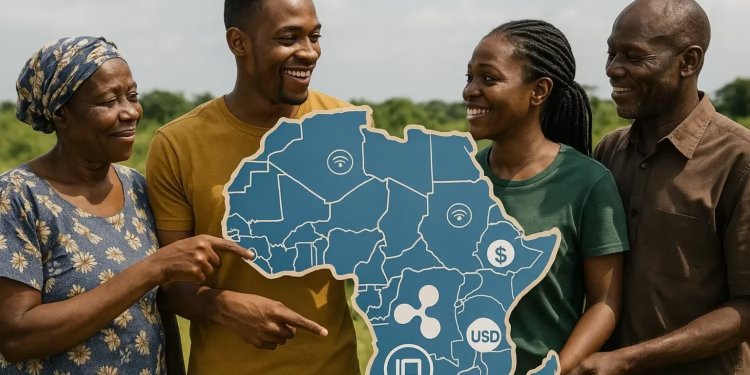Ripple has expanded its RLUSD stablecoin partnerships into Africa, aligning with three major fintech firms—Chipper Cash, VALR, and Yellow Card—to strengthen the use of its enterprise-grade stablecoin in cross-border payments, treasury management, and trading.
The announcement, made in a September 4 press release, highlights Ripple’s broader strategy to cement its presence in emerging markets. Since its debut in late 2024, RLUSD has surpassed $700 million in market capitalization, a milestone Ripple attributes to its compliance-first approach and regulatory framework under a New York limited-purpose trust license.
Jack McDonald, Ripple’s Senior Vice President of Stablecoins, said institutional demand has been a key driver. “We’re seeing demand for RLUSD from our customers and other key institutional players globally and are excited to now begin distribution in Africa through our local partners,” — Jack McDonald, SVP of Stablecoins at Ripple.
Institutional partners and their vision
Each of Ripple’s new partners brings regional expertise to the RLUSD stablecoin partnerships, positioning the asset as a tool for efficiency and trust in financial services.
Chipper Cash CEO Ham Serunjogi emphasized that RLUSD could transform the remittance landscape. “This partnership offers our customers faster and cheaper ways to send money home, while relying on a trusted, regulated digital dollar,” — Ham Serunjogi, CEO, Chipper Cash.
Similarly, VALR co-founder Farzam Ehsani linked the partnership to long-term digital asset strategy. He noted that RLUSD aligns with their mission to promote compliant and high-quality digital assets in Africa. Yellow Card’s Chris Maurice added that RLUSD would meet increasing customer demand for reliable, dollar-backed infrastructure in volatile markets.
These endorsements reflect how RLUSD stablecoin partnerships are seen as a practical response to Africa’s pressing need for stable cross-border settlement options.
Humanitarian use cases and real-world pilots
Beyond commercial applications, Ripple has also positioned RLUSD for humanitarian and climate resilience programs. In Kenya, Mercy Corps Ventures is piloting RLUSD in rainfall and drought insurance schemes. The model holds funds in escrow and uses smart contracts linked to satellite weather data, releasing support to farmers automatically during climate shocks.
This pilot underscores Ripple’s claim that RLUSD stablecoin partnerships extend beyond trading floors and institutional treasuries, directly impacting communities where financial resilience is critical.
A global footprint for RLUSD
Africa’s inclusion follows Ripple’s August 22 partnership with Japan’s SBI VC Trade to distribute RLUSD to institutions in Asia, the world’s largest stablecoin market. The expansion adds to Ripple’s network across Latin America, Europe, and Asia, building a global presence for RLUSD.
“Subsidizing crypto mining risks distorting energy markets,” — IMF spokesperson, in a statement to Independent Urdu. While not directly commenting on Ripple, the IMF has consistently cautioned against unchecked digital asset expansion, urging governments to balance innovation with stability. Ripple’s compliance-first framework is a direct response to these concerns.
With RLUSD stablecoin partnerships now spanning four continents, Ripple is positioning RLUSD as a regulated, global alternative to unbacked or less transparent stablecoins. Its strategy is to bridge financial institutions, decentralized finance protocols, and humanitarian use cases under a single infrastructure.
Outlook for Africa and beyond
The arrival of RLUSD in Africa raises broader questions about how dollar-backed stablecoins will reshape financial services in emerging economies. For fintech firms like Chipper Cash, VALR, and Yellow Card, the collaboration offers opportunities to expand customer bases while integrating compliant solutions. For Ripple, it cements Africa as a central node in its global expansion strategy.
If successful, RLUSD stablecoin partnerships could set a precedent for how regulated stablecoins are adopted in regions where currency volatility, remittance costs, and financial exclusion remain pressing challenges.











